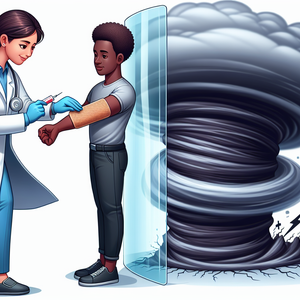Future-Proofing Your Career in Tech

Adaptability is perhaps the most crucial skill in today's tech environment. The ability to pivot and embrace new technologies or methodologies can set you apart from your peers. For instance, many professionals have transitioned from traditional software development roles to burgeoning fields like data science or machine learning as these areas gained prominence. Their success stemmed from an openness to learning new languages, tools, and frameworks. A practical example of adaptability can be seen in the rise of cloud computing. Tech professionals who upskilled to learn about platforms like AWS or Azure found themselves in high demand, while those who clung to outdated technologies faced stagnation. The shift towards cloud services has transformed how businesses operate, leading to a greater need for individuals who understand cloud architecture and services. To cultivate adaptability, engage in projects that push you outside your comfort zone. Attend workshops on emerging technologies and stay informed about industry trends. Networking within professional circles can also expose you to innovative ideas and practices, further enhancing your ability to adapt.
The Value of Continuous Learning
In the tech industry, continuous learning is not just an asset; it's a necessity. The rapid pace of innovation means that skills can become obsolete in a matter of months. To stay ahead, commit to lifelong learning through various avenues such as online courses, certifications, or formal education programs. Platforms like Coursera, edX, and Udacity offer a plethora of courses ranging from artificial intelligence to cybersecurity. Participating in hackathons or coding boot camps can provide hands-on experience that is invaluable. For example, a software engineer who recently completed a data science boot camp can effectively transition into a data analyst role, leveraging the practical skills gained during the program. Moreover, consider setting learning goals—dedicate time weekly to explore a new technology or tool, and document your progress. This proactive approach not only enhances your knowledge but also demonstrates to potential employers your commitment to self-improvement. Companies like Greptile value candidates who take initiative in their learning journeys, as this reflects a growth mindset.
The Role of Soft Skills
While technical expertise is paramount, soft skills are increasingly recognized as critical to career longevity. Effective communication, teamwork, and problem-solving abilities can significantly influence your success in tech roles. Companies like Greptile often seek candidates who can collaborate well in diverse teams and articulate their ideas clearly. To develop your soft skills, seek opportunities to engage in group projects, whether in a professional setting or through community initiatives. Participating in public speaking events or workshops can enhance your communication abilities. Moreover, reflecting on past experiences where you faced challenges can help you identify personal strengths and areas for improvement. This self-awareness can transform you into a more effective professional and leader. Consider joining professional organizations or clubs that focus on skill-building. Networking with peers can also provide insights into how others navigate challenges, fostering a collaborative learning environment.
Future-proofing your career in tech requires a multifaceted approach that emphasizes adaptability, continuous learning, and the cultivation of soft skills. As the technology landscape evolves, professionals must be willing to embrace change, commit to lifelong education, and hone their interpersonal abilities to remain competitive. Companies like Greptile continue to innovate, creating a demand for resilient professionals who can thrive in the face of change. Take charge of your career today by identifying areas for growth and actively pursuing opportunities that align with your goals. By investing in your adaptability, learning, and soft skills, you can position yourself as a valuable asset in the ever-evolving tech landscape, ensuring that your career not only survives but thrives in the future.
Cloud Solutions Architect
Amazon Web Services, Microsoft, start-ups focused on cloud technologies
Core Responsibilities
Design and implement scalable cloud architectures using platforms like AWS, Azure, or Google Cloud.
Collaborate with cross-functional teams to assess business requirements and ensure robust cloud solutions.
Provide technical leadership and best practices for cloud migration and optimization.
Required Skills
Proficiency in cloud services and architectures, including serverless computing and microservices.
Strong knowledge of networking, security protocols, and compliance regulations in cloud environments.
Experience with DevOps practices and tools (e.g., Docker, Kubernetes).
Data Scientist
Google, Facebook, financial institutions that rely heavily on data analytics
Core Responsibilities
Analyze large datasets to extract actionable insights, leveraging statistical methods and machine learning techniques.
Develop predictive models and algorithms to inform business strategies and decision-making processes.
Communicate findings to stakeholders through effective data visualization and storytelling.
Required Skills
Proficiency in programming languages such as Python or R, with experience in data manipulation libraries (e.g., Pandas, NumPy).
Strong understanding of machine learning frameworks (e.g., TensorFlow, scikit-learn).
Experience with data visualization tools (e.g., Tableau, Power BI).
Cybersecurity Analyst
Cisco, IBM, organizations in finance, healthcare, and government sectors
Core Responsibilities
Monitor and respond to security incidents and breaches, implementing strategies to mitigate risks.
Conduct vulnerability assessments and penetration testing to identify and address potential security threats.
Develop security policies and procedures, ensuring compliance with industry standards and regulations.
Required Skills
Knowledge of cybersecurity frameworks (e.g., NIST, ISO 27001) and tools (e.g., SIEM, intrusion detection systems).
Proficiency in network security, encryption technologies, and incident response strategies.
Relevant certifications such as Certified Information Systems Security Professional (CISSP) or Certified Ethical Hacker (CEH).
DevOps Engineer
Atlassian, Netflix, various start-ups focused on agile development
Core Responsibilities
Facilitate collaboration between development and operations teams to streamline software delivery processes.
Implement CI/CD pipelines using tools like Jenkins, GitLab CI, or CircleCI.
Manage infrastructure as code (IaC) using tools such as Terraform or Ansible.
Required Skills
Strong knowledge of scripting languages (e.g., Bash, Python) and configuration management tools.
Familiarity with containerization technologies (e.g., Docker, Kubernetes).
Understanding of cloud platforms and microservices architecture.
UX/UI Designer
Adobe, Airbnb, design agencies, tech companies
Core Responsibilities
Conduct user research and usability testing to inform design decisions and create user-centered designs.
Develop wireframes, prototypes, and high-fidelity mockups for web and mobile applications.
Collaborate with developers to ensure design fidelity and effective implementation of user interfaces.
Required Skills
Proficiency in design tools such as Adobe XD, Sketch, or Figma.
Strong understanding of user experience principles, responsive design, and accessibility standards.
Excellent communication and collaboration skills to work with cross-functional teams.


